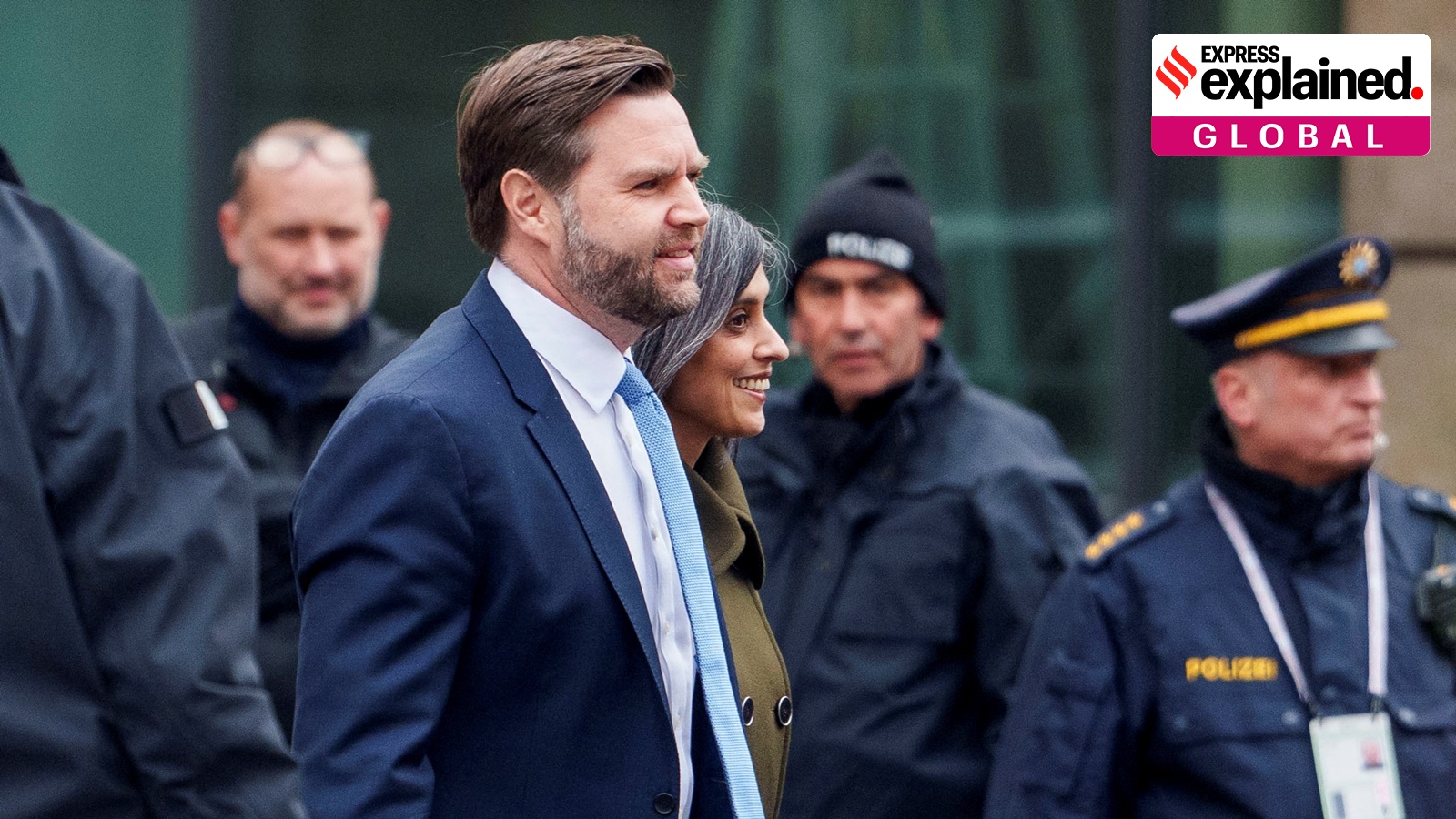Why JD Vance’s speech at Munich Security Conference drew criticism in Europe
Several commentators have said Vance’s speech indicated a larger shift in the US-Europe relationship. What did he say, and what is the Munich Security Conference?
 US Vice President JD Vance attends the Annual Security Conference in Munich, Germany, February 14, 2025. (Photo: Reuters)
US Vice President JD Vance attends the Annual Security Conference in Munich, Germany, February 14, 2025. (Photo: Reuters)German Chancellor Olaf Scholz has disapproved of US Vice-President JD Vance’s speech at the Munich Security Conference on February 14, where Vance criticised European nations for their stance on hot-button issues such as free speech and immigration.
“That is not appropriate, especially not among friends and allies. We firmly reject that,” Scholz told the conference on Saturday (February 15). Several commentators have said Vance’s speech was indicative of a larger shift underway in the US-Europe relationship, as it spoke of a divergence in their “shared values”.
Vance had said, “The threat that I worry most about for Europe is not Russia. It’s not China. It’s not any other external actor. What I worry about is the threat from within—the retreat of Europe from some of its most fundamental values, values that are shared with the United States of America.”
Here is what to know about the context of the speech and the significance of the Munich Security Conference (MSC), where it was delivered.
What exactly did Vance say?
The speech and its responses are a function of political developments in Europe and the US.
Vance gave recent examples from Europe to argue that the continent is moving towards rejecting freedom and liberty — values seen as fundamental to the Western, liberal global order that Europe and the US represent. He said of the Munich conference: “…The organisers of this very conference have banned lawmakers representing populist parties on both the left and the right from participating in these conversations.”
“Now again, we don’t have to agree with everything—or anything—that people say. But when political leaders represent an important constituency, it is incumbent upon us to at least participate in dialogue with them,” he added.
Within Germany, where the speech was delivered, the rise of the right-wing party Alternative für Deutschland (Alternative for Germany) or AfD in the last few years has raised some alarm given the country’s history. In September 2024, AfD became the first ever far-right party after World War II to secure an electoral victory in their regional elections.
Elon Musk, billionaire and advisor to US President Donald Trump, has also championed the AfD and its rise. He has commented on European politics in general on similar ideological lines, criticising the UK’s government under Prime Minister Keir Starmer of the Labour Party. In an extraordinary post on X, he recently said, “America should liberate the people of Britain from their tyrannical government.”
US President Donald Trump himself has caused worry in Europe about the future of the transatlantic relationship. For one, he threatened tariffs on Europe after assuming office in his second term. Ursula von der Leyen, President of the European Commission (the executive arm of the EU), referenced this during her speech at MSC: “A stronger Europe works with the United States to deter the threats we have in common as partners, and this is why we believe that trade wars and punitive tariffs make no sense.”
On the security front too, Trump had a phone conversation with Russian President Vladimir Putin last week. It shocked many in Europe, given the opposition to Russia following its invasion of Ukraine. US Defence Secretary Pete Hegseth also said at a NATO meeting in Brussels last week, “We want, like you, a sovereign and prosperous Ukraine. But we must start by recognising that returning to Ukraine’s pre-2014 borders is an unrealistic objective,” terming it an “illusionary goal”.
And what is the Munich Security Conference?
The MSC was founded by a German official and publisher Ewald-Heinrich von Kleist at the peak of the Cold War. Starting in 1963, the conference initially only focused on military issues and was mainly attended by Western countries and their high-profile officials, who “came together to display a united front in their struggle with Soviet communism”, according to Financial Times.
After the end of the Cold War in 1991, the conference expanded its agenda beyond defence and security to include issues like climate change and migration. It also began inviting leaders from eastern nations, including Russia, India and China.
Today, the MSC, held in February every year, “seeks to promote trust and contribute to the peaceful resolution of conflicts by facilitating ongoing, curated, yet informal dialogue within the international security community”, according to the conference’s website.
What kind of themes have been discussed at MSC?
The MSC has seen a kind of return to its original purpose of late, following the Ukraine-Russia war. In 2023, for the first time in 20 years, Russia wasn’t invited to the event. Iranian leaders were also disinvited due to the brutal suppression of protests by women in Iranian cities against the enforcement of strict dress codes.
The same year, billionaire investor George Soros said that the allegations of stock manipulation levied by US short-seller Hindenburg Research against the Adani Group threatened to hurt investor confidence in India and might weaken Prime Minister Narendra Modi’s hold on the government.
- 01
- 02
- 03
- 04
- 05






































